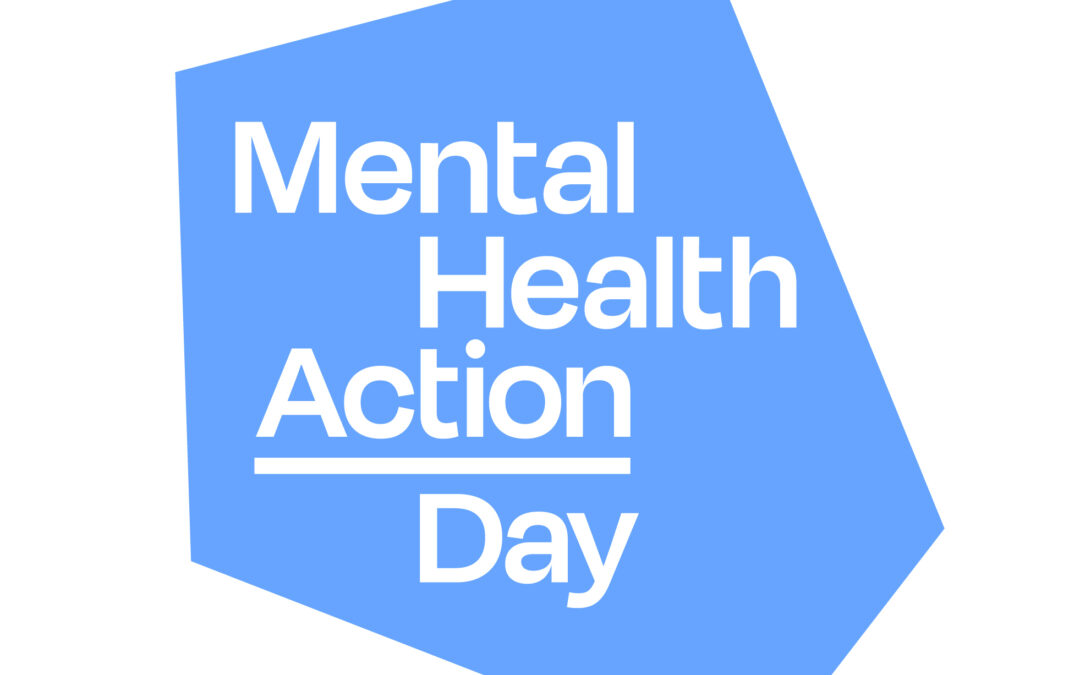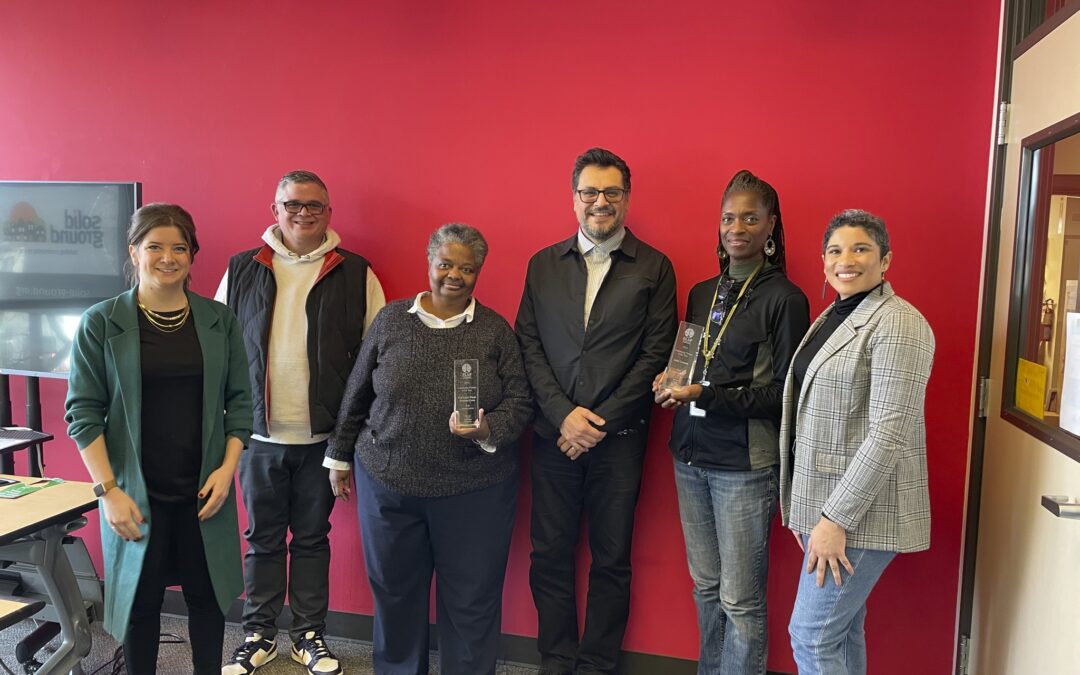
by Meg S | May 21, 2024
As the flowers bloom and the days grow longer, spring marks a season of renewal and growth. It’s a time for clearing out clutter, both physical and emotional, and this includes tidying up the relationships in our lives. Just as we declutter our homes, it’s essential to engage in some “spring cleaning” for our relationships, particularly when it comes to managing conflicts that can affect our mental health.
Conflict is an inevitable part of any relationship, whether it’s with a partner, family member, friend, or colleague. How we handle conflict can significantly impact our mental well-being. Unresolved conflicts can lead to stress, anxiety, and even depression if left unchecked. However, navigating conflicts effectively can strengthen relationships and promote emotional resilience.
Here are some strategies for spring cleaning your relationships and managing conflict for better mental health:
- Communication is Key: Effective communication is the foundation of any healthy relationship. Be open, honest, and respectful when expressing your thoughts and feelings. Avoid bottling up emotions or resorting to passive-aggressive behavior, as this can escalate conflicts.
- Practice Active Listening: Truly listening to the other person’s perspective is crucial for resolving conflicts. Practice active listening by giving your full attention, summarizing what you’ve heard, and asking clarifying questions. This demonstrates empathy and shows that you value their viewpoint.
- Choose Your Battles Wisely: Not every disagreement needs to turn into a full-blown conflict. Learn to differentiate between minor annoyances and issues that genuinely matter to you. Focus on addressing the most significant concerns while letting go of smaller grievances.
- Seek Compromise: Conflict resolution often involves finding a middle ground where both parties feel heard and respected. Be willing to compromise and negotiate solutions that are acceptable to everyone involved. Remember that it’s okay to agree to disagree on certain points.
- Take Time for Self-Care: Dealing with conflict can be emotionally draining, so it’s essential to prioritize self-care during these times. Engage in activities that help you relax and recharge, whether it’s exercise, meditation, spending time in nature, or pursuing hobbies.
- Consider Professional Help: In some cases, resolving conflicts may require outside assistance. Don’t hesitate to seek the guidance of a therapist or counselor who can provide objective support and teach valuable communication skills.
- Set boundaries and Enforce Them: Communicate your needs, expressing what you’re comfortable with, and asserting your limits regarding topics like personal space, time commitments, and communication preferences.
- Take the FREE Conflict Resolution for Everyone Training: Come learn basic conflict management skills that anyone can use to help resolve problems in everyday life.

(This article was originally published in the KCDRC May 2024 Newsletter. Subscribe here to receive all future stories: Dispute Resolution Center of King County (list-manage.com))

by Michelle Wilkinson | May 14, 2024
The Dispute Resolution Center of King County today announced their participation, in partnership with more than 2,300 leading brands, nonprofits and cultural leaders globally, in the fourth-annual Mental Health Action Day, to be held on Thursday, May 16. Spearheaded by SHOWTIME/MTV Entertainment Studios and TaskForce, Mental Health Action Day is an open-source and decentralized global movement to encourage and empower people to take action for mental health. This year’s call to action is to dedicate one hour to social connection. KCDRC is proud to be activating this year by encouraging people to settle disputes that interfere with their emotional well-being.
Conflict Resolution and Mental Health
KCDRC Executive Director, Dave Martine notes, “We know that conflict is everywhere, and unfortunately, unresolved conflicts in our relationships have a negative effect on our emotional well-being. Research shows that relational stress can lead to feelings of depression, anxiety, loneliness, and stress. On this Mental Health Action Day, we are encouraging everyone to think about the conflicts that are worrying them and look for ways to finally resolve them”.
“We are proud to come together with this diverse group of influential and purpose-driven partners who share our commitment to empowering and encouraging people to shift from mental health awareness to mental health action,” said Erika Soto Lamb, Vice President of Social Impact Strategy at MTV Entertainment Studios. “When we recognize that mental health is health, we have an opportunity to demystify, destigmatize and normalize taking actions to help ourselves and each other.”
Will You Take an Hour to Connect?
This year’s call to action is to dedicate one hour to CONNECTION. Participants are encouraged to take their first steps towards mental health action — whether for themselves, for their loved ones or to advocate for systemic changes through a wide range of tools. Free resources and tools, such as an employer toolkit and platforms for hosting and organizing events, are available for organizations and groups to help support their audiences through a myriad of ways – from starting a meditation practice to learning how to support a friend to advocating for change.
KCDRC is proud to join more than 2,300 organizations, brands and influential leaders around the world including SHOWTIME/MTV, Big Brothers Big Sisters, Pinterest, NBA, Sesame Workshop and U.S. Surgeon General Dr. Vivek Murthy who are encouraging everyone to “dedicate one hour to connection”. A full list of partners is available at mentalhealthaction.network/partners.
“Please remember that this is the perfect time to take action that resolves your disputes and improves your mental health” Martine adds. “Afterall, mental health is health”.
Learn more at MentalHealthIsHealth.us or you can follow along at #MentalHealthActon.

by Michelle Wilkinson | Apr 10, 2024
If you’re in a disagreement, fixing it without going to court might seem strange. But fewer civil cases actually go to trial nowadays, with most issues resolved through something called alternative dispute resolution (ADR). Although it may be court-required, you can pick pre-litigation mediation even before starting the regular legal process.
Why Choose Mediation First?
Mediation lets both sides talk about their issues. It’s private, cheap, less adversarial, and it lets you and the other person decide on a solution together. Plus, it can save you a lot of money and time.
There are several big advantages to trying to settle a case before going to court in pre-litigation mediation:
Save money: The Court process can be pricey. Hiring a lawyer and filing everything in court adds up fast. Mediation is cheaper, and the Dispute Resolution Center of King County offers affordable services on a sliding scale, based on your income.
Save time: Court cases may also take a lot of time. Filing papers and waiting for your case to be heard, especially with extensions, can take even longer. Mediating before filing lets you solve the problem faster, with less stress since both sides have less time to stick to their positions.
Less emotional stress: In mediation you may be able to resolve things faster without waiting for a court decision. Also, court can be scary for some people, so the more relaxed atmosphere of mediation can help ease those fears. In mediation no one can force you into anything.
Avoiding uncertainty: Courts try to be fair, but letting a judge or jury decide means dealing with their opinions. In mediation, you have more say in the outcome, often coming up with unique solutions that wouldn’t happen in court. In mediation, you and the other person who is mediating with you get to decide on any settlement and no one else.
Privacy: Once you file in court, your issue may become public. But mediation is private and confidential, so your issue stays between you and the other person. You negotiate the outcome instead of having someone else make the decision for you.
Keeping relationships intact: Going to court may add to the tension in already strained relationships. Mediation can help avoid that, making it easier to get along even after the dispute is settled.
Is pre-litigation mediation right for you?
It’s not always the best choice, but when it works, it’s a great way to solve problems. The Dispute Resolution Center of King County offers mediation for private parties in pre-litigation, as well as part of the pre-trial court programs. If you want to see if your case could benefit from mediation, contact us here.
by Michelle Wilkinson | Mar 22, 2024
Foreclosure Mediation Services is, perhaps, one of the least known mediation services that the Dispute Resolution Center of King County provides. We started providing foreclosure mediations soon after the WA state legislature passed the Foreclosure Fairness Act in 2011. With an overall resolution rate of 89 percent, as well as a home retention rate of 59 percent in 2023, we have completed 1075 foreclosure mediations over the life of the program.
What is The Foreclosure Fairness Program?
The Foreclosure Fairness Program (FFP) established by this Act has two major objectives.

- First, to protect homeowners from avoidable foreclosures.
- Second, to ensure the foreclosure process, itself, is fair and transparent. This allows both the borrower and the mortgage lender to meet, as well as make well-informed decisions, even during situations when foreclosure is unavoidable.
The Department of Commerce is the manager of the FFP. Commerce works in collaboration with the Washington State Housing Finance Commission, the Office of the Attorney General and the Office of Civil Legal Aid. The key providers of services, however, are mediators, attorneys, and housing counselors.
Well-Trained Foreclosure Mediators Make a Difference
Mediators play a pivotal role in helping lenders and borrowers resolve their foreclosure issues. However, neither party can initiate contact with a mediator. The Washington State Commerce assigns mediators to cases that have been referred to the program by attorneys or housing counselors. The mediators it assigns have successfully completed its foreclosure mediation training. In early 2023, Commerce had 59 mediators on its approved list. Currently, the Dispute Resolution Center of King County has five of those mediators.
According to Sharon Moon, the Foreclosure Mediation Case Manager and a Foreclosure Mediator for KCDRC, Commerce’s training is essential. “Foreclosure law is very technical. It has technical processes, documents, and jargon. The 3-day training does not help someone become an expert in foreclosure law, but it will help the mediator be aware of what the parties are talking about and what they mean.”
A long-term volunteer in the program, Deborah Diamond, notes, “I have been very impressed with some of the loss mitigation specialists who are good at explaining the numbers in an empathetic way. Some others come across as flat/low affect, so I sometimes need to calm the borrowers. I explain that there is no subjective element to these decisions, just objective requirements (even if they seem arbitrary) and regulations that must be met.”
Operating in Good Faith during a Foreclosure Mediation
 Foreclosure Mediations are unlike most of the mediations we do in one other way. In addition to impartially facilitating the conversation between the parties, mediators must determine and certify whether each party has participated in the mediation in good faith. Examples of not being in good faith include – not paying required fees, not showing up to a session, and not providing the documentation required. Some mediators feel uncomfortable with the responsibility of determining whether a party has participated in “good faith.”
Foreclosure Mediations are unlike most of the mediations we do in one other way. In addition to impartially facilitating the conversation between the parties, mediators must determine and certify whether each party has participated in the mediation in good faith. Examples of not being in good faith include – not paying required fees, not showing up to a session, and not providing the documentation required. Some mediators feel uncomfortable with the responsibility of determining whether a party has participated in “good faith.”
If you are not one who feels discomfort with certifying “good faith” and are curious about doing foreclosure mediation, keep tabs on the Foreclosure Fairness Program at Commerce. It might just offer another mediator training to expand its pool.
Foreclosure Mediation Growing?
The foreclosure rate in the United States was 2.23 percent in 2010, just after the Great Recession. It declined steadily to .11 percent in 2021. The rate is now on an uptick at .23 percent in 2022. If it continues to increase, the demand for foreclosure mediations may grow. If you are a homeowner interested in the program, call the Washington Homeownership Hotline at 1.877.894.HOME.

by Michelle Wilkinson | Feb 25, 2024
In January, the Dispute Resolution Center of King County was proud to receive the 2023 Community Partner of the Year Award, along with Solid Ground, from the Eastside Legal Assistance Program. When members of the three organizations gathered together, it was a first-time meeting in person after collaborating for more than a year virtually.
ELAP bestowed this shared honor on KCDRC and Solid Ground thanks to a partnership forged and managed by KCDRC’s Strategic Development and Special Project Advisor, Marilyn. She created a weekly housing clinic that provided information and conflict coaching for people with rental housing eviction issues during COVID-19. The weekly clinics started in March 2022 and concluded in June 2023 as the Eviction Resolution Pilot Program (ERPP) ended. The other organizations involved in the partnership included Tenant Law Center (TLC) of Catholic Community Services, Northwest Justice Project, and the Rental Housing Association of Washington. We are proud to accept this award because it represents the thousands of people helped to preserve rental housing in King County as a result of the pandemic.
The housing clinic partnership was also presented by ELAP at a recent Access to Justice conference as a best practice model. We hope that other organizations learn from the success we had and that they will create new collaborations to address all sorts of community issues.
KCDRC has been an active part of the King County community since our founding in 1986. We understand how important it is to connect with other organizations and groups throughout the community to gain the best understanding of who we are serving. Establishing effective partnerships is vital to our ongoing success. We are always seeking new partnerships that help strengthen our mission, and we welcome ideas from our community about new opportunities for collaboration.
by Michelle Wilkinson | Feb 21, 2024
If you have ever had a conflict – and who hasn’t? – you probably have wondered how you could make it easier. Whether you are fighting with your spouse, a co-worker, or a neighbor, there are some helpful tips for solving conflict and coming up with a solution.
 Slow Down
Slow Down
Perhaps the first step is the most important: Step back and slow down. In the heat of the moment, tensions are high, and we often fall back on the behaviors we know. However, those repeated behaviors haven’t worked in the past, so why would they work this time? Rather than turn on auto-pilot, take the time to stop what you are doing and think about the situation. By becoming aware of what is happening, we can start to change our approach and our words around the conflict. If we are aware and engaged, we can plan what we want to say and avoid saying things that will escalate the issue even more.
Ask for a Conversation
Once you have stepped back and thought about what you want to say and do, it’s time to approach the other person and find out if they are willing to have a conversation. You have had the benefit of rethinking your approach, but they might still be in a defensive “fight” mode. Help them to understand you want to talk, not yell. Tell them how important the topic is and why a conversation will help you maintain a good relationship with them. Allow them the time to calm down and save face, even if it means you aren’t both ready to talk just yet. Let them know that you want to have a conversation so you can both express your views and feelings and problem-solve together.
More Tips for Solving Conflicts
These two tips can help you get started in solving a conflict in your personal or professional life. For more tips for solving conflicts, visit our Resolution Tips page or check out the Seattle Times article featuring KCDRC. And if you cannot come up with a solution on your own, you can always turn to the Dispute Resolution Center of King County to find out how Mediation Services can assist.









